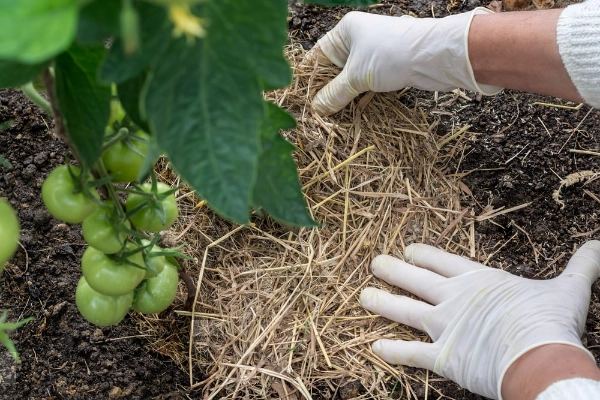
The Grounds Guys provide insights on the best mulches for vegetable gardens.
|
Adding mulch to the bed of your vegetable garden provides many benefits. Mulch helps suppress weeds, retains moisture, and stabilizes the soil by maintaining a consistent ground temperature. But what is the best mulch for vegetable gardens? Well, you have two types to choose from, organic and inorganic mulch. Organic mulch can include compost, leaves, and grass clippings. While inorganic mulch consists of black plastic, landscape fabric, rocks or gravel.
Table of Contents:
- Advantages and Disadvantages of Using Organic Mulch
- Advantages and Disadvantages of Using Inorganic Mulch
- Types of Mulch for Vegetable Gardens
- Choosing the Right Mulch for Your Vegetable Garden
- Why Use Mulch in Vegetable Gardens
- How to Apply Mulch in Vegetable Gardens
- Mulching Tips for Vegetable Gardens
- When and How to Mulch in Vegetable Gardens
- Maintaining Mulch in Vegetable Gardens
Advantages and Disadvantages of Using Organic Mulch
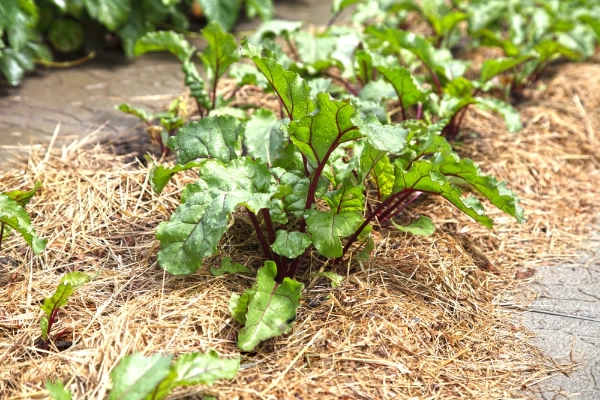
Advantages of Organic Mulch:
- Breaks down over time, which releases additional nutrients into the soil.
- Eco-friendly so it doesn’t harm the environment.
- Usually less expensive than inorganic.
- Retains moisture which helps keep plants hydrated.
- Helps prevent soil erosion.
- Adds an aesthetically pleasing appearance to your garden.
- Attracts insects that are beneficial to the soil, such as earthworms.
Disadvantages of Organic Mulch:
- May attract unwanted pests like termites, bugs, rats, and ants.
- Mulch consisting of dry leaves, straw, and pine needles, can pose a fire hazard.
Advantages and Disadvantages of Using Inorganic Mulch
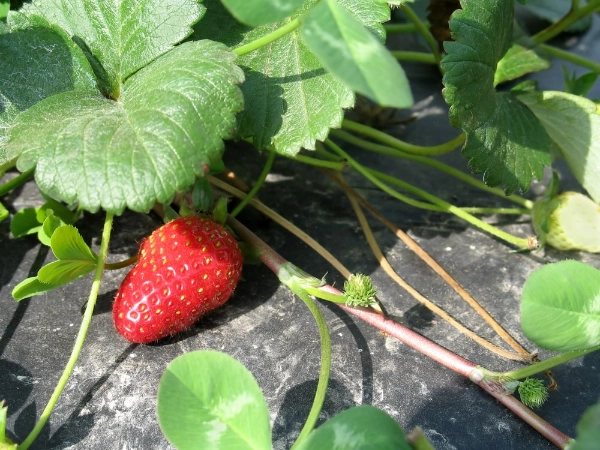
Advantages:
- Excellent at suppressing weeds.
- Great at keeping the soil warm and moist.
- Can be used for the next growing season.
Disadvantages:
- Does not decompose.
- Can be damaged by the sun and wind over time and start looking worn.
- Not very eco-friendly.
Types of Mulch for Vegetable Gardens
Since inorganic and organic mulch both suppress weeds, you may be wondering, what is the best mulch for vegetable gardens? Organic mulches are the better choice for root health and long-term plant growth, whereas inorganic mulch will last longer in your garden. Therefore, choosing the best mulch depends on what vegetables you are growing, soil type, and your climate. To help you decide on the best mulch for your needs, we’ve listed some of the top mulches to use in a vegetable garden, and a description of when to use them.
Compost
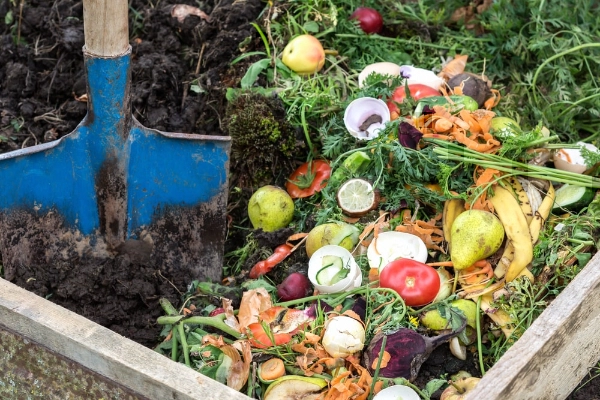
Compost is an excellent mulch for vegetable gardens. It breaks down quickly, is rich in nutrients, and improves the quality and structure of your soil. Plus, it can keep the roots of vegetables insulated and safe. Compost is also a food source for earthworms, which helps aerate your soil. Earthworms can also release chemicals that protect your plants from diseases.
Grass Clippings
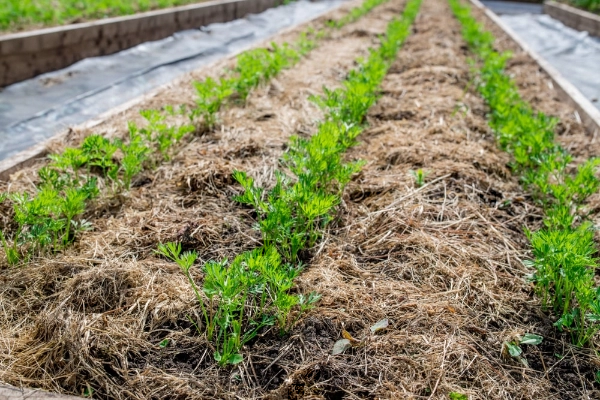
After you've mowed your lawn, don't throw away those grass clippings. When they’re dry, grass clippings can be used to provide essential nutrients to the soil in your vegetable garden. Be sure not to use grass clippings that have been treated with herbicide, as the chemicals can damage certain vegetables.
Leaves
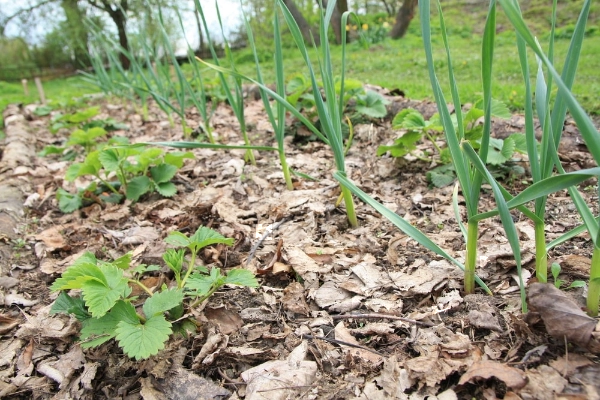
Leaves are inexpensive organic mulch. They benefit vegetable gardens because they can stabilize soil temperatures, keeping the soil cool in warm weather and warm when it's cold. Leaves also attract earthworms and other beneficial soil organisms and they help control weeds, too.
Pine Needles
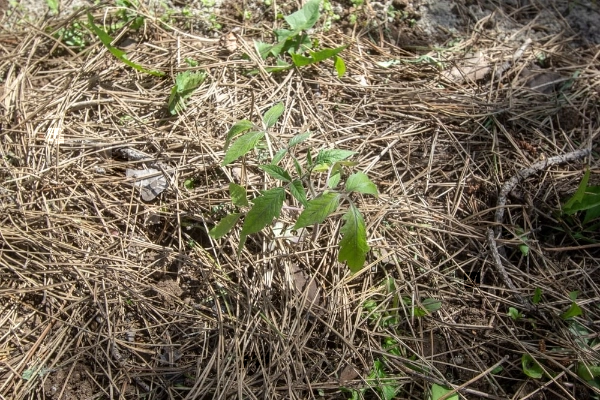
Pine needles are an excellent option for vegetable gardeners growing acid-loving vegetables such as celery, broccoli, cucumbers, carrots, cabbage, tomatoes, and other veggie favorites.
Straw
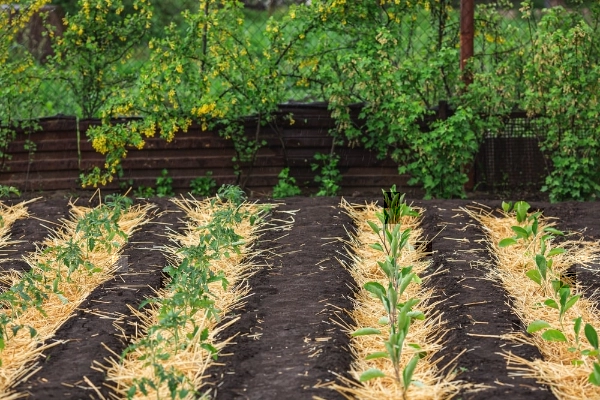
Try using straw when you're mulching in the winter or early spring. Straw is excellent at insulating the soil and helps retain moisture.
Black Plastic
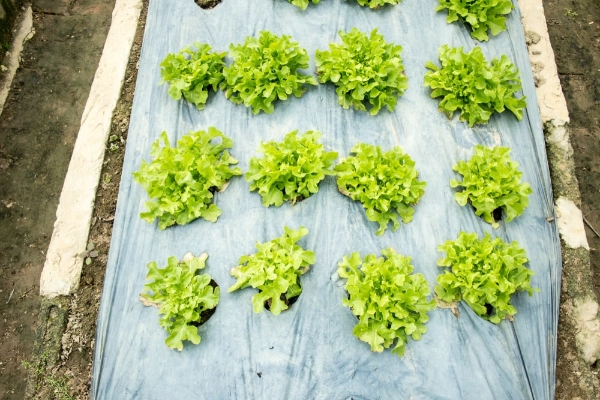
Black plastic is excellent at keeping weeds at bay. It keeps the soil moist and warm, so it's a superb mulch option for melons, peppers, tomatoes, and other heat-loving vegetables.
Gravel
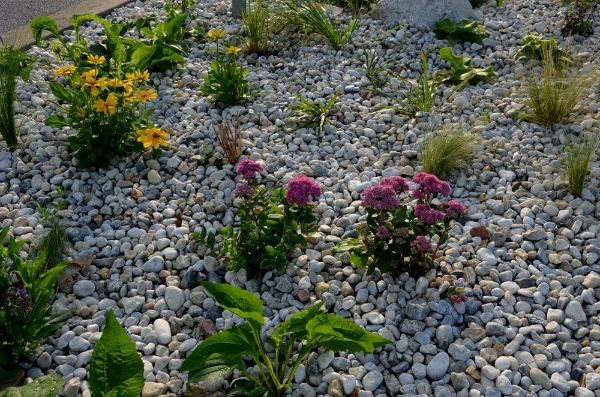
You can use gravel to keep those pesky weeds out of your vegetable garden. Of course, it's an inorganic mulch, so it doesn't add any nutrients to your soil, but it does keep its temperature consistent and helps prevent soil erosion.
Choosing the Right Mulch for Your Vegetable Garden
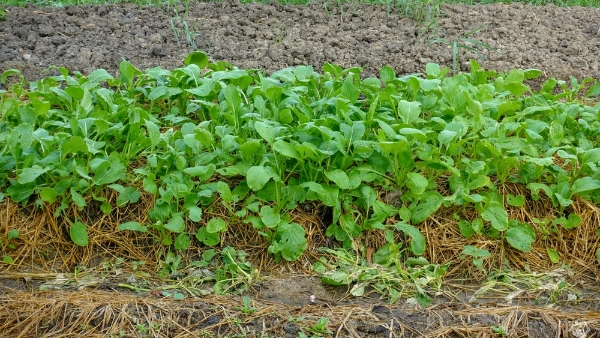
Not all vegetables have the same growing conditions, so consider the crops you want to grow in your vegetable garden. Evaluate your soil type. Most vegetable plants won't do well if the soil is too heavy and/or wet. Your local climate also significantly influences how a particular mulch will perform in your garden. Take these variables into account when selecting the best mulch for your vegetable garden.
Why Use Mulch in Vegetable Gardens
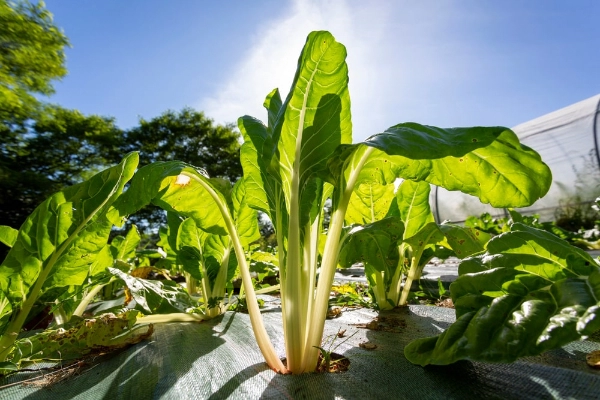
Growing a vegetable garden provides a bounty of benefits for you, your family, and the environment. But if you want your green garden to thrive, adding mulch can help your veggies grow healthy, strong and tasty. Mulch keeps your veggies cozy during chilly nights, prevents weeds from taking over, locks in moisture, helps maintain a consistent soil temperature, and keeps your vegetables safe from diseases.
Here are more benefits mulch brings to a vegetable garden:
- Protects young and tender vegetables as they develop.
- Suppresses weeds that rob plants of nutrients.
- Stabilizes soil temperature and protects against frost.
- Locks in soil moisture to keep plants hydrated.
- Helps roots grow healthy and strong.
- Reduces soil erosion and runoff during heavy rains.
- Minimizes soil-borne diseases and keeps them from spreading to other plants.
How to Apply Mulch in Vegetable Gardens
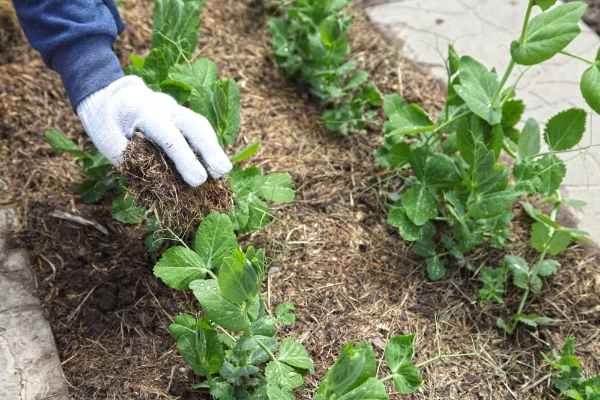
Applying mulch in vegetable gardens is a breeze. You can add about 2 to 3 inches, no matter which organic mulch you choose. Anything more than 3 inches will make it harder for water to reach the roots of the plants.
Mulching Tips for Vegetable Gardens
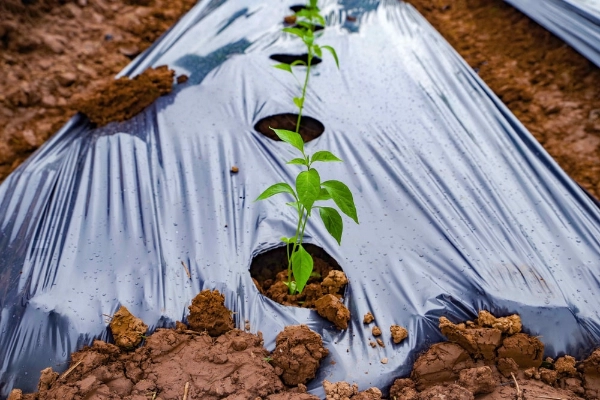
You can get the most from your mulch by using the following mulching tips:
- Don't apply too much (2 to 3 inches is plenty).
- If using compost, till about 1 to 3 inches into your soil during the end of the growing season
- If you're using inorganic mulch, such as plastic, use a white or silver-colored mulch for veggies that prefer cool soil conditions.
- Add a nutrient-rich fertilizer underneath the mulch.
When and How to Mulch in Vegetable Gardens
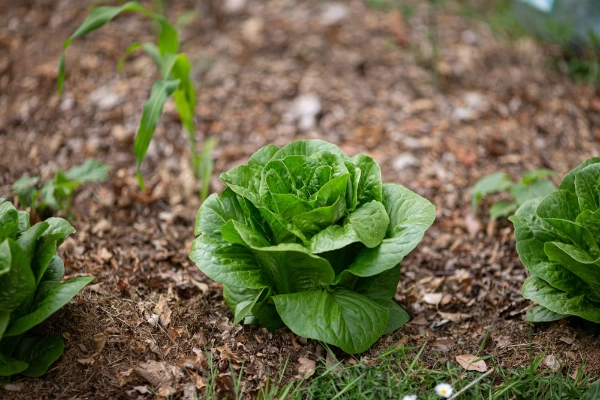
You'll want to spread mulch before the start of the growing season, so the middle of spring is an ideal time. If you're mulching to prevent weeds, apply it in early spring before the weed seeds germinate.
Maintaining Mulch in Vegetable Gardens
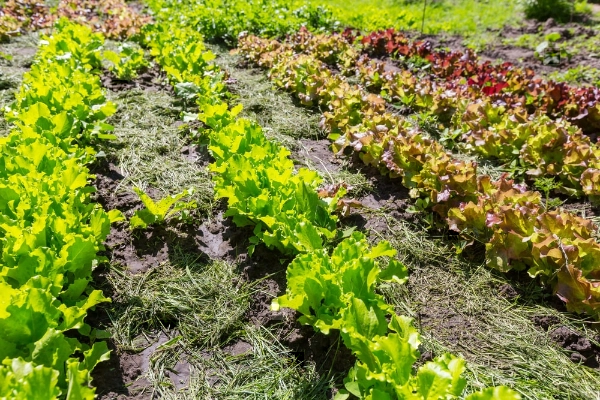
Keep an eye on the mulch throughout the growing season. Remember that applying too much mulch can do more harm than good. Also, make sure you check the condition and depth of your mulch periodically to ensure it continues to serve its purpose.
Start Mulching and Enjoy Your Healthy Veggies
Adding mulch to your vegetable garden can help your crop of vegetables thrive. And consuming a lot of veggies will help you stay healthy and strong too! Choosing the best mulch for your vegetable gardens is just part of maintaining a healthy landscape. When you need expert advice to keep your lawn and landscaping healthy and thriving, call The Grounds Guys®. We have the experience and expertise to keep your property looking its absolute best all year round. Find The Ground Guys location nearest you, and let us do all the work. We’re happy to answer any questions and back all our work with the Neighborly Done Right Promise™, which guarantees your satisfaction. Contact us today for a free estimate.